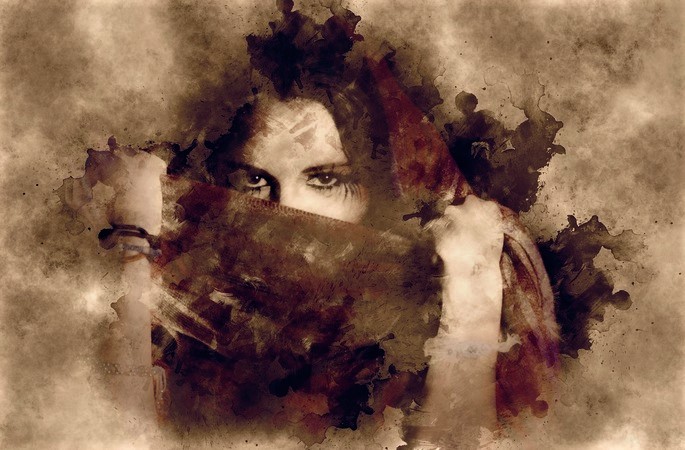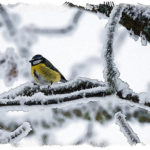It’s the latest thing taking the internet by storm; parodies of how men write about and represent women.
Takes a wild guess on which body part figures prominently in their writings?
As a young teenager growing up in the nineties, I was puzzled by the women I read about in fiction and their own obsession with their breasts. Ever since I developed mine, I have been puzzling about what the big deal is?
Turns out I was not alone.
Like millions of other women across the globe, I was left thinking I was just ‘different’, thanks to all the books I read.
Because in the universe of men’s portrayal of women: women wake up naked and stretch luxuriously, while their nipples stand erect. They examine themselves in the bathroom or bedroom mirrors and plump their breasts up with pure pleasure.
They wear white t-shirts with black bras so that their bras can be clearly seen defined through the t-shirt. I was left scratching my head when I first came across this trope as a teenager. One of the first things I learned from my mother when I developed my own breasts was to wear black bras through white clothing because black could not be clearly seen. It is white bras that would stand out if the material of the outer garments is thin enough to make out undergarments. Yet in a male author’s world, women would wear black bras instead of white so that men could clearly see them.
It took me a long, long time to realise, men writing about women have little clue about what they are writing. And can’t be bothered to research about it before writing about us so authoritatively either. Thus generations of men and women grow up exposed to this mindset; thinking that women are all about ‘plumping up breasts’.
Calling it out
Now, however, a new generation of feminist writers are calling out the phenomenon.
It started sometime last year over a movement by marginalised people: people of colour, migrants, LGBTQ folks, and of course women – to reclaim the way they are represented, by portraying themselves through their own voices, as they could not recognise themselves in the writings of others. By ‘others’ I usually mean cisgendered white males at the acme of the writing pole – as they are at the zenith of everything else in the world they have conveniently designed for themselves, and demand the rest of us inhabit while seeing ourselves through their eyes.
The OwnVoices movement has been around for some time, and, as is typical of such movements, its members attract attacks from those they seek to question regularly. Some months ago in 2018, a male author challenged them with the notion that if men could write women as well as he himself did, where was the need to challenge it?
One woman author Gwen C. Katz, took the trouble to read how he portrays women and then flagged the notice of other women on Twitter – from where it went viral. Here are a few samples from just this self-assured male author’s very first chapter:
“I sauntered over, confident he noticed me. I’m hard to miss, I’d like to think — a little tall (but not too tall), a nice set of curves if I do say so myself, pants so impossibly tight that if I had had a credit card in my back pocket, you could read the expiration date. The rest of my outfit wasn’t that remarkable, just a few old things I had lying around. You know how it is.”
Pants so tight that if she had a credit card in her back pocket, you could read the expiration date?
I would like to see
1. A woman who describes herself this way.
2. Pants indeed so tight that you could see the credit card’s expiration date through it.
Great description, by this unknown male author! Indeed, if you can capture women like this, we don’t need our own voices portraying ourselves. Oh wait, there is more:
“I could only imagine the thoughts that were running through his head. Naughty thoughts,” and “I could imagine what he saw in me. Pale skin, red lips like I had just devoured a cherry popsicle covered in gloss, two violet eyes like Elizabeth Taylor’s.”
A cherry popsicle covered in GLOSS (ever seen a popsicle covered in gloss?!?) and TWO eyes, just in case you make the mistake of thinking the woman is a one-eyed Cyclops. Wonderful description, right there.
“Halfway there, I saw it. The Look. The look that told me, “Girl, keep coming, and you’re going to be in trouble.” The look that causes quaking knees in lesser women. But I could handle it. I’ve seen that look a thousand times, in a thousand bars and clubs and joints, and it always winds up the same way.”
…
I appeared at his side – close, but not too close – and leaned up against the bar, a smile on my lips as if I were looking to buy a drink. Please. I don’t buy drinks for myself. Ever.
True to form, the man to my right, the one with the delicious eyes, held up a finger to the bartender as he turned to face me. Without skipping a beat, he looked me up and down and apparently liked what he saw, because he leaned in and spoke above the music.
When he heard me speak – heard my soft drawl borne from a lifetime in the Deep South – he grinned. He probably thought I’d be easy, a southern girl lost in the big ol’ city.
He ordered the drink, and the bartender was right on time with it. I lightly ran a finger around the rim as if I were thinking about drinking it right there, in one gulp, just to see what the man would say. But I didn’t. I wanted to be coy. So, coy I was.
I looked over at him and smiled the most genuine smile I could muster. ‘Thanks.’
‘Trent. My name. Trent.’ He held out a hand.
I took his hand in that dainty lady way, with a limp handshake barely touching his fingers with mine (ladies, a tip: that always gets their juices flowing), and smiled.”
In 2018, a cis-male author was so unaware that he thought this was a great job of portraying women, never mind other marginalised voices and called out the ‘OwnVoices’ movement on their spuriousness. I mean, how deluded of them! When men like him do such a great job of being our voices, why bother?
Despite being called ‘angry feminists’ all the time, the only way we can effectively deal with this is with humour. And good for us, because the many hilarious tweets and facebook posts women responded with have now taken the internet by storm – thus raising awareness on this much-needed issue.
Go online and Google ‘men writing women’ and ‘women describe how men describe them.’ There is enough material on the world wide web to keep you laughing for a week.
Universal Dislike Of Women
It’s not an accident, this stereotype of women as unlikeable, predatory characters. Another viral internet meme gave us all an Aha moment to explain the phenomenon.
‘We don’t like women characters in books because they are often portrayed by men who don’t like women.’
Yep, the only thing these male writers like about us is our boobs. And butts. We are little more than that in their books, and what little else they do portray is not likeable.
I often share these memes attacking such male writers on my social media pages.
This column today was inspired by a ‘meninist’ – one of those poor, beleaguered males who feel the need to fight for men’s rights against us oppressive women calling for our own rights, and our own voices reclaimed. It’s very oppressive to men, and they have their own meninists calling us out now.
I came awake today to one such calling me out on a meme I had shared the night before.
‘Women writers do this to us, men, too’ challenged the meninist. And to prove it, he shared a picture of a popular romance writer’s book with a buff male on the cover. I was amused. Yes, we do have the silly characterisation of males in romance novels, but we don’t go on and on about their penises. In fact we never even mention them.
A tip to men who keep sending women d*** pics – it might be your fantasy to receive naked pics from women. But trust me – we are NOT flattered, NOT fascinated when you do the same to us – especially of your lower body. Keep it in your pants.
The regularity with which this happens all the time – unsolicited – is a good indication of what little clue many men have of women. Why? It’s not that difficult to understand us – despite all the memes men keep putting out about never being able to understand us, women. Just ask them. Talk to them. Ask them what they want. They won’t be shy to tell you.
Just take your eyes off making out the expiry date on the credit card in their back pants pocket and focus on what they say. You might learn something valuable. And if you actually concentrate, you might realise our lips don’t curve like a Cheshire cat’s – but sexily – which is how male writers portray us. And we are not all that ‘catty’ beneath our smiles either.
As for women romance writers and how they portray men, I had intended to write a whole ream on that. I’ll leave that for another time. But I’ll leave you with this – the romance book industry is a multi-billion dollar industry, catering mainly to impressionable teenaged and young adult women. Most of the contracted writers are women, yes – but the publishing industry itself is heavily patriarchal, with only males at the top. Males who call the shots on what should be written and how.
This industry contributes not just a little to brainwashing young women with the need to be virgins for their ‘one true love’ while that one true love would be sowing his wild oats left, right and centre. Because you know, he’s a MAN, and that’s how manly men behave.
But I do agree with the meninist. Men are portrayed strangely, too. As my then-teenage sister put it, over a decade ago: ‘All the Mills & Boon heroes walk masterfully with pantherish grace. How come we don’t see men like that in real life? All I see are fellows acting and walking like the Pink Panther .’



